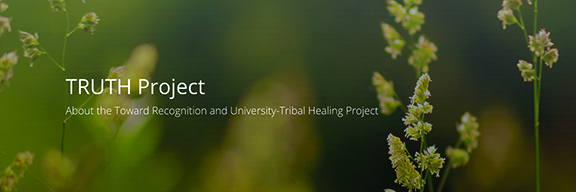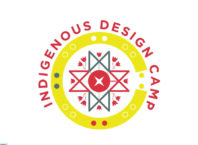
By Lee Egerstrom
TRUTH Project researchers argue a strong case that the University of Minnesota, and its Board of Regents, need to take “concrete, meaningful and measurable” steps to foster healing between the state’s lead research university and the state’s 11 tribal nations and Indigenous population.
This, they said, must combine reparations, truth-telling, policy change and what they called “transformative justice processes.” The latter includes focus on perspectives and voices of Indigenous people, recognition and respect for Indigenous sovereignty, providing resources and support for language and cultural revitalization, and access to healthcare and education.
To do so, the report offers several steps the university and its leadership should take to right the wrongs of the past and move Minnesota forward. It is essentially a checklist of “do’s and don’ts” to guide university policy.
TRUTH is short for Towards Recognition and University-Tribal Healing. (See the companion article on page 4 in this issue.)
A starting point, the report said, would be a Board of Regents annual review and “rematriation” of Indigenous lands. This term means more than repatriation, or returning ancestral lands; rather, it means returning to a way of life consistent with Mother Earth (nature).
It also calls for Reparations in Perpetuity. The Morrill Act of 1862 created the land grant university system and also established a Permanent University Fund (PUF) at the institutions. These permanent funds were created by land and resources taken from Indigenous people and tribes, should now be used for “perpetual reparations.”
That means diverting PUF streams. In seeking economic justice, the report said, part of the PUF annual investment returns should be given back to Native Americans in perpetuity.
The report makes a strong case for better Indigenous representation at the university. “The Board of Regents must adopt measureable policies that remedy the lack of Indigenous representation in administration, tenure-track faculty, staff and students on all UMN campuses.”
One remedy advocated by the report would address the representation issue, at least at the student enrollment level, and for the calls for reparations and rematriation. In a category called a “commitment to education as individual and tribal self-determination,” it asks that the full cost of attendance be waived for all Indigenous people and descendants, regardless of their home states.
Another category calls for changes in curricula and in university housekeeping practices. It asks the university to enact policies that respect tribal sovereignty and culture.
To do so, the report called on the Board of Regents to establish Indigenous research policies that respect sovereignty and treaty rights, and develop Indigenous curriculum requirements for all degree programs to prepare future graduates to understand those right. And, it called on the university to do a system-wide inventory of human remains and Indigenous cultural items still being held in collections or warehouses.
Two other requests provide guidance for university actions going forward.
One, called “Sites for Future Research,” calls for fully funding research continuing the work of the TRUTH Project and ways for the university system to have better relations with Indigenous peoples. The other might simply be called a reminder for the university to obey the law.
That latter request, a category called “Meet Trust Obligations,” reminded the university that as a federal land grant institution it should adhere to trust responsibilities spelled out in laws and upheld by the U.S. Supreme Court. This appears from other studies to be a problem for land grant universities all cross the country.
These recommendations are an outgrowth from TRUTH Project researchers finding seven areas where university research and practices have been harmful to Indigenous peoples and the state’s anchor tribes. In one especially painful look back at university history, the researchers state that founding Board of Regents members committed genocide and used ethnic cleansing practices against the Native population for personal gain. They used the university as a shell corporation to launder lands and resources.
Forced removal of Native people became part of this effort. The early Regents used their positions in government to pass anti-Indigenous legislation that financially benefited themselves and the university.
The researchers also expose university and regents actions in other categories, including:
• Land expropriation: The university benefited from multiple land grabs, including at least 186,791 acres of land Congress granted Minnesota between 1851 and 1868.
• Wealth transfer and accumulation: Resources, such as the minerals and timber mined and harvested from expropriated Indigenous lands, continue to gather at the university.
• Revisionist history: This is a national problem not unique to Minnesota. The researchers say the term “land grant” is a revisionist historical creation to cover up the theft of land, wealth and resources from Indigenous people.
• Indigenous erasure: This last category is focused on our university but is most likely a nationwide problem throughout the land grant system. The researchers concluded the university has “failed to adequately teach the correct history of this land, resulting in the perpetuation of a lack of knowledge of Tribal sovereignty, Indigenous rights, and benefits of diverse environments among UMN graduates and Regents alike.”
All this was researched and prepared by a large collection of Indigenous leaders, educators and researchers who jumped into the task that was largely created by High Country News, a Colorado-based news magazine. It showed in a 2020 report that Minnesota was among leading states in expropriating Indigenous lands and resources to support the university in its infancy. Ohio State University, the University of California system, and New York State are other out front university systems now looking at how the land grab became the land grant.
What Minnesotans of all ethnicities should know is that the TRUTH Project did pull together enormous talents and resources to produce this in depth report. It was too massive to cite all the contributions, but Minnesota’s federally recognized tribes participated with university faculty, graduate research assistants of diverse Indigenous backgrounds, and others who worked with the Minnesota Indian Affairs Council to research, analyze and write the report.
A co-chair of a special task force created at the start of the two-year project was Tadd Johnson (Bois Forte Ojibwe), then a university professor and senior director of the university’s Office of American Indian Tribal Nations Relations. He has since retired from the faculty and has been appointed to fill a vacancy on the Board of Regents.
Other co-chairs included Jean O’Brien (White Earth Ojibwe), a university professor; and Christopher Pexa, (Spirit Lake Nation), an assistant professor. Native American graduate research assistants worked with tribal research fellows (TRFs) and were funded by Minnesota Transform, a higher education initiative supported by the Mellon Foundation. It works to promote decolonial and racial justice at the university, in the Twin Cities and across the state.
Others from research, tribal archival and heritage and cultural backgrounds who worked on the project reflect the Indigenous diversity in Minnesota. Among examples were An Garagiola (Bois Forte Ojibwe), Audrianna Goodwin (Red Lake Ojibwe), Angel Swann (White Earth Ojibwe), Sean Dorr (Mille Lacs Ojibwe), Benjamin Yawakie (Pueblo of Zuni, Turtle Mountain Ojibwe, Fort Peck Assiniboine/Sioux, and Whitebear First Nation), Lemoine LaPointe (Sicangu Lakota), Laurie Harper (Leech Lake Ojibwe), Jaylen Strong (Boise Forte Ojibwe), and the project coordinator for the Minnesota Indian Affairs Council was Misty Blue (White Earth Ojibwe).
The TRUTH report can be found at: https://mn.gov/indian-affairs/truth-project.






